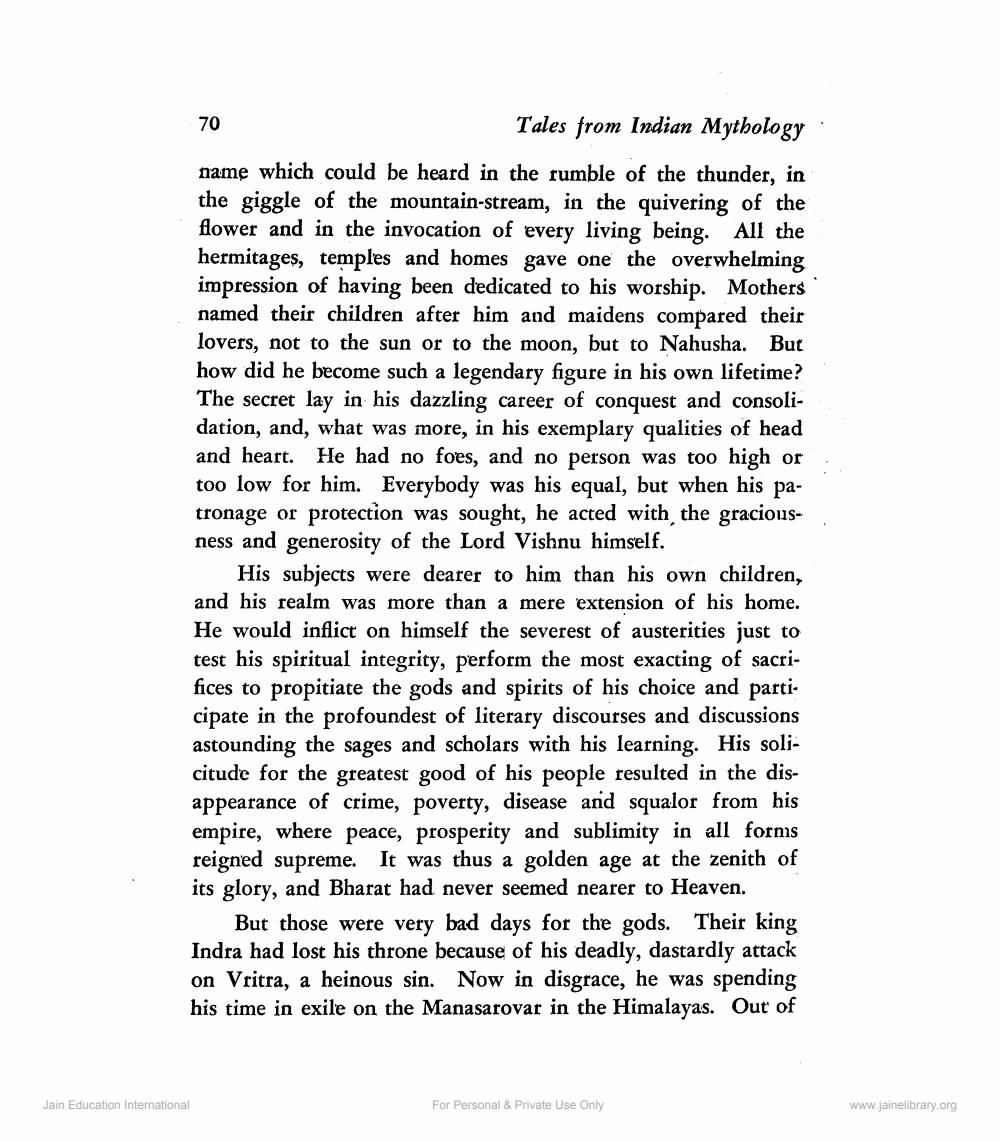________________
70
Tales from Indian Mythology.
name which could be heard in the rumble of the thunder, in the giggle of the mountain-stream, in the quivering of the flower and in the invocation of every living being. All the hermitages, temples and homes gave one the overwhelming impression of having been dedicated to his worship. Mothers named their children after him and maidens compared their lovers, not to the sun or to the moon, but to Nahusha. But how did he become such a legendary figure in his own lifetime? The secret lay in his dazzling career of conquest and consolidation, and, what was more, in his exemplary qualities of head and heart. He had no foes, and no person was too high or too low for him. Everybody was his equal, but when his patronage or protection was sought, he acted with the graciousness and generosity of the Lord Vishnu himself.
His subjects were dearer to him than his own children, and his realm was more than a mere extension of his home. He would inflict on himself the severest of austerities just to test his spiritual integrity, perform the most exacting of sacrifices to propitiate the gods and spirits of his choice and participate in the profoundest of literary discourses and discussions astounding the sages and scholars with his learning. His solicitude for the greatest good of his people resulted in the disappearance of crime, poverty, disease and squalor from his empire, where peace, prosperity and sublimity in all forms reigned supreme. It was thus a golden age at the zenith of its glory, and Bharat had never seemed nearer to Heaven.
But those were very bad days for the gods. Their king Indra had lost his throne because of his deadly, dastardly attack on Vritra, a heinous sin. Now in disgrace, he was spending his time in exile on the Manasarovar in the Himalayas. Out of
Jain Education International
For Personal & Private Use Only
www.jainelibrary.org




